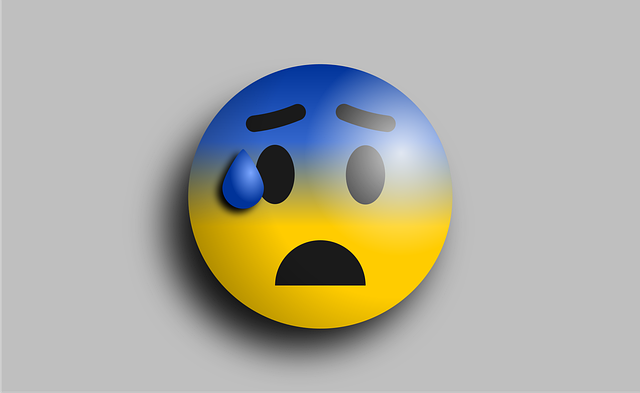Anxiety disorders, prevalent across diverse backgrounds, stem from genetic factors, environmental stressors, brain chemistry imbalances, and traumatic events. Physical & mental symptoms include rapid heartbeat, sweating, tension, worry, restlessness, and insomnia. Professional anxiety treatment, combining therapies like CBT with medication, is key to managing symptoms. Self-care strategies like deep breathing, exercise, balanced diets, and adequate sleep complement professional help for effective anxiety management.
Anxiety is a prevalent condition affecting individuals across various demographics. Understanding its causes and symptoms is crucial in navigating this complex emotion. This article delves into the common triggers of anxiety, exploring both physical and mental manifestations. We discuss the importance of professional help, highlighting effective treatment options for managing anxiety. Additionally, practical self-care strategies are presented to empower individuals in their journey towards conquering anxiety. Discover valuable insights on overcoming anxiety with our comprehensive guide, emphasizing the role of professional anxiety treatment.
Recognizing Common Causes of Anxiety
Anxiety disorders are among the most prevalent mental health challenges globally, affecting millions of people across all demographics. Recognizing the common causes of anxiety is a significant step in understanding and managing this condition. Many factors can contribute to the onset of anxiety, including genetic predisposition, environmental stressors, brain chemistry imbalances, and traumatic life events.
For some individuals, specific situations or triggers can induce anxiety symptoms. Common causes include social interactions, public speaking engagements, exams, or even everyday tasks when perceived as overwhelming. Work-related stress is another significant factor, with demanding jobs, high-pressure environments, or challenging relationships often exacerbating anxiety. Access to professional anxiety treatment has proven effective in managing these challenges, offering various therapies and strategies tailored to individual needs.
Physical and Mental Symptoms Unveiled
Anxiety presents itself in a myriad of ways, with both physical and mental symptoms that can significantly impact an individual’s daily life. Physically, one might experience rapid heartbeat, shortness of breath, excessive sweating, and even muscle tension. These symptoms are often accompanied by mental manifestations such as persistent worry, restlessness, difficulty concentrating, and insomnia. The mind becomes a whirlwind of negative thoughts and fears, which can lead to avoidance behaviors or increased irritability.
Recognizing these signs is crucial for seeking professional anxiety treatment. A comprehensive approach, combining therapy and sometimes medication, can effectively manage anxiety. Therapies like Cognitive Behavioral Therapy (CBT) teach individuals to challenge negative thought patterns and face their fears gradually. This dual approach not only alleviates symptoms but also empowers individuals to lead more fulfilling lives without the constant shadow of anxiety.
Professional Help: Effective Treatment Options
Many individuals struggling with anxiety may find it beneficial to seek professional help. Anxiety disorders are a common mental health concern, and numerous effective treatment options are available. Psychotherapy, such as cognitive-behavioural therapy (CBT), is a well-known approach that helps individuals identify and change unhelpful thought patterns and behaviours contributing to their anxiety. Medication, including selective serotonin reuptake inhibitors (SSRIs) and benzodiazepines, can also be prescribed by qualified healthcare professionals to manage symptoms.
Support from mental health professionals enables individuals to develop coping strategies, understand the underlying causes of their anxiety, and regain control over their lives. Accessing professional anxiety treatment has been shown to significantly improve outcomes and enhance overall well-being. With the right support, individuals can learn to manage their anxiety effectively, leading to improved quality of life and increased resilience.
Strategies for Self-Care and Management
Anxiety, when left unaddressed, can significantly impact daily life, but there are effective strategies for self-care and management that can help individuals regain control. One crucial aspect is recognizing triggers and developing coping mechanisms. This may involve identifying specific situations or thoughts that induce anxiety and learning relaxation techniques like deep breathing exercises or meditation to counteract these feelings. Regular physical activity is another powerful tool; it stimulates the release of endorphins, which can improve mood and reduce anxiety symptoms.
Additionally, maintaining a balanced diet and adequate sleep are essential for managing anxiety. Consulting with a healthcare professional or therapist can provide personalized guidance on these strategies and more, ultimately supporting individuals in their journey towards effective professional anxiety treatment.
Anxiety, a prevalent condition affecting many, stems from various causes and manifests through distinct physical and mental symptoms. Recognizing these triggers is the first step towards managing and overcoming anxiety. While self-care strategies can provide temporary relief, seeking professional anxiety treatment offers lasting solutions. By consulting specialists, individuals can access tailored therapy and medication, empowering them to reclaim control over their lives and foster resilience in the face of anxiety’s challenges.
